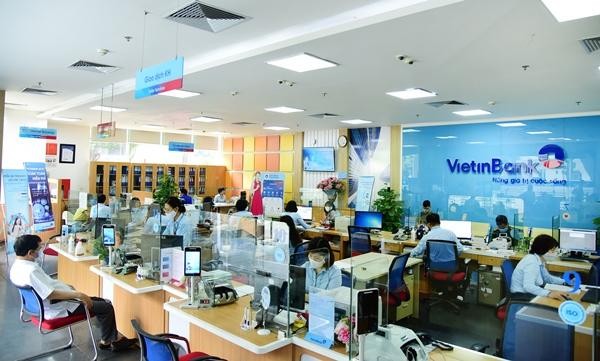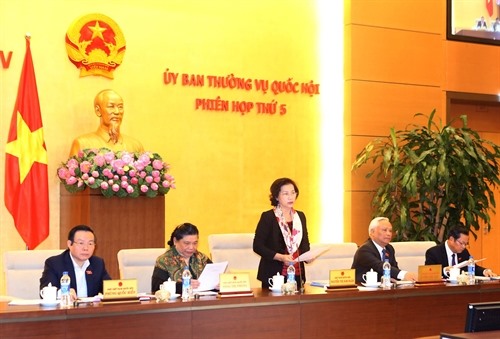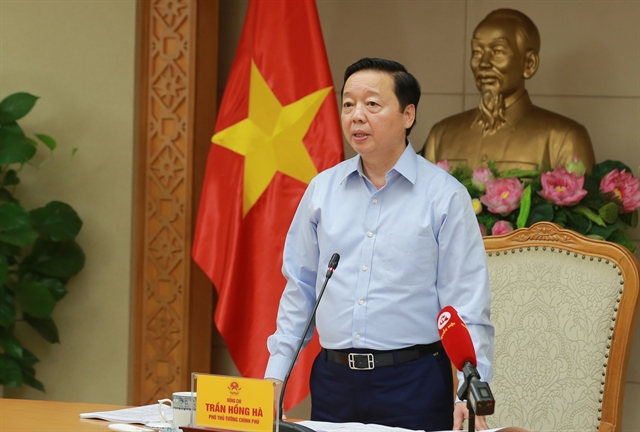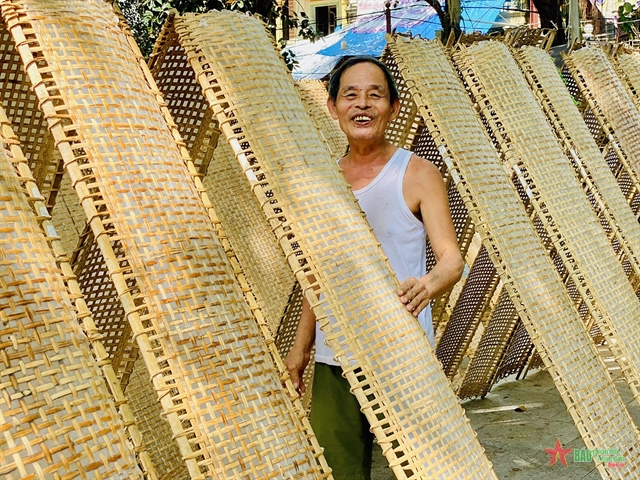 Politics & Laws
Politics & Laws

The fourth session of the 14th National Assembly (NA) Standing Committee began in Hà Nội yesterday and is expected to last four days. The first working day was taken up with the discussion of regulations on co-operation between the Supreme People’s Court and the Ministry of Defence on the organisation of military courts.
 |
| The fourth session of the 14th National Assembly (NA) Standing Committee began in Hà Nội yesterday and is expected to last four days. — VNA/VNS Photo |
HÀ NỘI — The fourth session of the 14th National Assembly (NA) Standing Committee began in Hà Nội yesterday and is expected to last four days.
The first working day was taken up with the discussion of regulations on co-operation between the Supreme People’s Court and the Ministry of Defence on the organisation of military courts. The regulations are expected to replace those adopted by the NA Standing Committee in 2002.
Lê Thị Nga, chairwoman of the NA’s Justice Committee, and other members asked for a report on the Government’s opinion of the regulations, and another report on the implementation of current regulations.
An improved draft on the regulations on the co-operation between the two agencies is expected to be introduced to the next working session of the NA Standing Committee.
Speaking at the opening ceremony of the fourth session, NA chairwoman Nguyễn Thị Kim Ngân said the committee would also discuss the ordinance on legal costs and court fees, the NA Standing Committee’s resolution on mechanisms for developing and assessing State budget estimates and disbursement, and the NA’s international co-operation plans for the coming year.
The NA Standing Committee will also discuss the Government decree offering a special financial and budget management mechanism for Hà Nội. Also on the agenda is discussion of four projects proposed by the State Audit of Việt Nam on its staff, payment and incentives, as well as the organisation of 14th Assembly of the Asian Organisation of Supreme Audit Institutions in 2018.
During this session, the NA Standing Committee will hear a Government report on the implementation of a 2015 resolution on Việt Nam’s economic international integration, Ngân said.
However, three key issues planned for discussion in this working session will not be discussed: amendments to the Criminal Code, a draft ordinance on incentives for people who contributed to the country’s revolution, and a draft resolution on punishment of retired State officials and employees found to have committed violations while in office.
Ngân said that the three issues required additional preparation before being submitted to the NA Standing Committee.
NA to meet in May
Additionally, the NA Standing Committee discussed the preparations for the third session, which is scheduled to last 22 and a half days from May 22, 2017.
During the session, the NA deputies will focus on law building by adopting 13 bills, one draft resolution, while debating eight other bills.
They will discuss reports by the Government on the socio-economic performance and State budget situation in 2016 as well as the implementation of plans in the first months of 2017. The legislators plan to spend one day to perform supervision over the implementation of laws and policies on food safety.
Some proposed the lengthening of question-and-answer session, so deputies have more time for discussion.
According to NA General Secretary Nguyễn Hạnh Phúc, the draft law on communal police and the draft revised law on corruption prevention and control, which were erased from the agenda of the second session, will be debated at the upcoming third session, together with the amendments and supplements to a number of articles of the 2015 Penal Code.
Assessing the outcomes of the second session, members of the NA Standing Committee agreed that it was a success and created a strong impression on voters thanks to the straightforward debates and effectiveness of the discussion.
The session’s agenda was arranged reasonably with flexible adjustments, they said, adding that the increase of the plenary discussion on socio-economic issues to three days from 2.5 days was a substantive change.
However, they also pointed out that the progress and quality of the preparation for a number of bills and resolutions failed to meet expectations, while the number of questions raised during the session was too high thus were not thoroughly answered. — VNS









